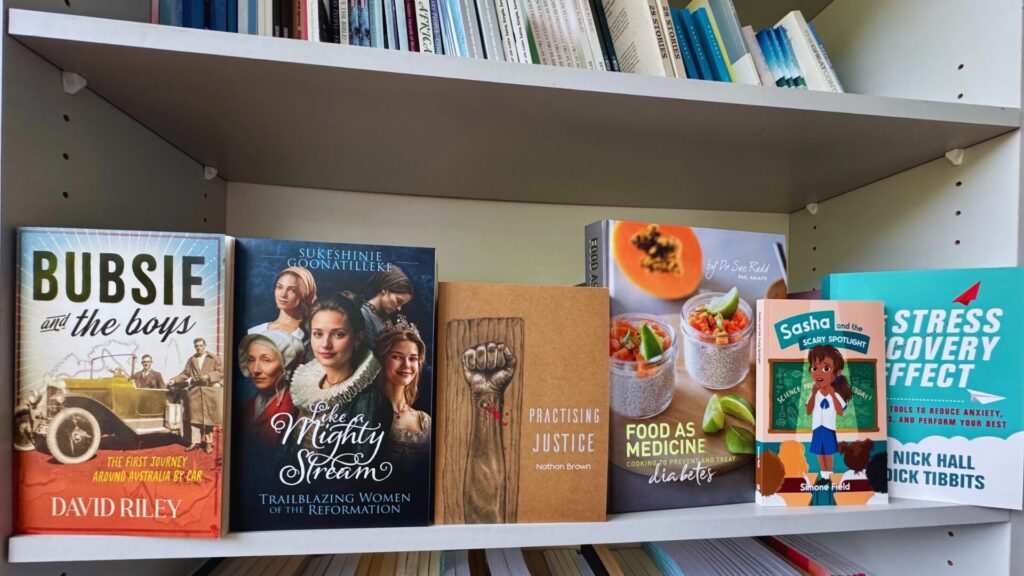Described as a shadow pandemic, domestic violence (DV) is a silent killer.
News services have been reporting an increase in domestic violence and the need for DV services during COVID-19 lockdowns. Governments are realising there is a problem and are starting to respond.
On the back of 2019 being the worst year for intimate partner violence in New Zealand, the New Zealand government pledged $2M to fight DV during the early days of the lockdown,1 while the Australian government launched a new “Help is here” campaign to raise awareness and provide important information.2 In Fiji last year 10 women died in DV incidents and, in 2020, the minister for women launched Fiji’s National Plan to Prevent Violence against Women and Girls, stating that Fiji has one of the highest rates of DV (per capita) in the world.3 In June, while much of the world marched against racism, Papua New Guineans were marching against DV triggered by the death of young mother Jenelyn Kennedy. PNG prime minister James Marape, who joined the vigil for Ms Kennedy, has hinted at law changes and declared that it is time to end the silence around DV.4
DV Affects everyone
Not just women but children and men are in violent relationships and impacted by the scourge of DV.
Representatives from ADRA Logan, Queensland, suggest that they are seeing an increased amount of DV cases come through, especially where men are the victims.
“While we don’t have tracking of DV for victims, we do have anecdotal conversations that people share with us,” says Sam Luteru, training coordinator for ADRA Logan. His colleague, assistant manager of ADRA Logan, Michelle Brown, concurs, recounting a recent incident she witnessed of a woman beating up her partner on a busy street in broad daylight. “And I’m quite surprised that there’s probably more men who come in with black eyes,” she says. The ADRA office does not deal directly with DV; however, they are able to point victims in the right direction and are always willing to listen.
“We try and do as much as we can,” says Mr Luteru. “Our tagline here in Logan is Caring, Helping and Supporting, so we try to do everything we can to help.”
Ms Brown has her own story of surviving domestic violence. “We all have an open-door policy. I came from DV so I can relate to these people.
“He made me feel like I was worthless; that he was the only person who was ever going to care for me. So I was dependent on him. And then he started threatening my children—and I would do anything to protect my children. Even though in the back of my mind I knew that I had to do something to try and get away from this, you don’t want to start involving everybody around you because you’re worried about them getting hurt. I was living in fear.”
Ms Brown finds that in opening up with her experience, women will share their own stories.
The abuse she describes happened after eight years out of the 20 she has worked at ADRA. She is thankful to her colleagues there for helping her through this difficult time in her life; supporting her, helping her to make police reports and eventually, to leave her abuser. She now supports those who come through the ADRA offices in need of similar help.
“DV can happen with anyone whether they’re well-to-do or poor families—it doesn’t matter,” says Ms Brown.
“I agree,” says Mr Luteru. “It’s no respecter of persons.”
It is tempting to see DV as something that happens outside of the protective walls of the church. But this is false. Our colleagues, friends, family members or even church members could be suffering, often in silence.
It is important to acknowledge that not all family violence is physical. Our understanding of what constitutes violence in a family has changed over time.
Domestic violence is a pattern of behaviour intended to control another person in the family or in an intimate adult relationship; including physical, verbal, emotional, economic, sexual and spiritual abuse (or a combination).
“We had all of these women coming forward [saying] ‘I wish he would hit me because then somebody could see the bruises and then they could believe how awful and how terrible it is to live with him’,” says Adventist relationship counsellor and Avondale University College lecturer Paul Bogacs. “So we had to rethink—DV doesn’t necessarily mean being hit. We now talk about different forms of DV; we talk about financial abuse, physical abuse, sexual, spiritual—all as different forms of DV, with the key underlying issue being control.”
That element of control is really at the centre of all violence.
“To feel some power, to feel that you have some kind of control over something—even if it’s what my wife does or doesn’t do. That is domestic violence,” says Mr Bogacs. “Now, we see it on a spectrum, because power and control are issues in all relationships. What I look at as a couple’s therapist is how much fear is there?”
Increased pressure and proximity during the time of COVID-19 mean that DV reports and incidents are rising, in number and frequency.
“Having people in close proximity with each other for a greater period of time is going to increase the opportunities for control,” shares Mr Bogacs. Being at home all day, every day, instead of the break that might be gained from employment or the freedom to go out or do things with the kids is taken away as families stay in close proximity. Financial pressures and job losses at this time are also making it hard.
But surely not in the church
“Does it happen in the Church? You bet,” says Mr Bogacs.
The premier Adventist study on DV was conducted in the US with more than 1400 participants (2006). Results showed that respondents fell within the same range as those in the community around them.5 A qualitative research group from the same study showed that more than 90 per cent of the abusers were church members themselves, with five pastors, six elders, six deacons and a number of others who held church leadership positions (out of 40 interviews).
“Domestic violence certainly happens in the Christian church,” agrees Dr Danijela Schubert from the South Pacific Division (SPD) Discipleship Ministries team. “If it’s happening out there, it’s happening in the Church. But if we are less willing to talk about it, then we have a bigger problem. We are supposed to be much better, more loving.”
Dr Schubert sees the Church as more willing to talk about DV these days, championing awareness campaigns like EndItNow.
Church leaders in the SPD have worked hard, both theologically and socially, making statements against DV and working to educate pastors and leaders. However, there is a gap between theory and practice at a grassroots level, where culture and literalistic interpretations6 of Scripture lead to propping up the secret stronghold of abuse.
Christians stay longer in abusive homes and spiritual abuse is always a component and damages the abused person’s perception of God.5
“Many people have experienced answers [from the Church] that put victims off. It is a really important thing that the first time they come forward, victims are believed. If that doesn’t happen, it is so much more difficult,” says Dr Schubert.
Craig* is an Adventist church member and health worker living in Australia who has been married for a little over two years. He reports being hit around the head when he would come home from a shift, raped during the night and verbally abused, while his bank account was also controlled. He claims the stepchildren in his home would not be fed if they hadn’t done the chores his wife required. “It’s not all physical abuse. The most distressing thing was that she tried to kill herself by drowning in the pool. I called the police for assistance and later she beat me with a wooden pole for calling them.”
Craig told Record how hard it is to get support in his situation. When he tried to tell his pastor about what was happening at home, he was told, “That doesn’t happen to men.” This dismissive phrase left Craig feeling unheard and disconnected. “Sometimes our Church doesn’t recognise domestic violence,” says Craig. “I think the Church is blind to a lot of things that happen. If there are no facilities in our Church, we can at least point people to organisations that help with these issues. Prayer for those in these situations is great, but prayer alone is not enough.”
Craig is now staying with friends, but had to leave his infant daughter behind.
“I just have to bide my time and hope God doesn’t let anything happen to my child,” he says.
Alongside a lack of support from his church, Craig made some revealing statements that point to difficulties in understanding and healing from DV in the Church. “I believe God calls us to love our partner more than we love ourselves; to protect and help them. It took me a long time to think that I could leave her. Now I know that God doesn’t expect you to stay in that situation. But I guess I can’t remarry, because that would be adultery.”
And unfortunately, he’s partially right, at least according to the current interpretation in the official Church Manual:
“A separation or divorce that results from factors such as physical violence . . . does not give either one the scriptural right to remarry, unless in the meantime the other party has remarried, commited adultery or fornication or died. Should a member who has been thus divorced remarry . . . he/she shall be removed from membership . . .” (p 160).
The current wording gives pastors and church members enough leeway to encourage the victims to stay in toxic relationships and, in a sense, binds the victims to what the abusers choose to do, rather than giving them autonomy and freedom to heal.
Although the Church added further statements, including a statement on abuse and family violence in 1995, and a statement on ending violence against women and children in 2010, these statements only say the right things to protect the Church, rather than helping individuals in our congregations with practical advice.
“I’m a firm believer in marriage and its sacredness,” says Mr Bogacs. “I’m not a believer, anymore, in marriage at all costs, because I’ve seen too many people be destroyed by destructive toxic relationships that really need to end.”
There is a strong argument to be made that being “unfaithful” includes any form of violence committed against the person, including spiritual manipulation, physical violence and sexual abuse.
“How on earth is somebody being faithful to the person they have promised to love and protect, when that’s their behaviour?” says Mr Bogacs. “To me, the marriage vows are already broken. We’re not talking about the occasional time, because they’ve just had enough and then it doesn’t happen again for years and years or never again. We’re talking about this pattern repeated over the years.”
Mr Bogacs continues, “If you look at the way that God sees humanity and the high regard God has for us and we’re asked to have for each other, then you cannot justify staying in a relationship with DV.”
Spiritual abuse
“In the Church, one of the things that happens is spiritual abuse. This is where the Bible is used as a weapon to control,” explains Mr Bogacs. “And the favourite text of men who do this is ‘Wives submit to your husbands’. That’s a great one. I’m just doing what God has told me to, after all God has appointed me head of the house. If you don’t like it, take it up with God. That can be a great way of rationalising what basically is abusive behaviour and controlling behaviour. Using one or two texts out of context in order to ask for obedience on behalf of the wife. The text that obviously isn’t quoted is ‘Submit to each other as to the Lord’. Which seems to me that submission should go both ways and primarily to God.”
Dr Schubert agrees. “Those people who may use texts for that, they are simply trying to give credence for what they want to do anyway. They don’t want to deal with their sinful nature. So if somebody is violent they have broken the vow to love/cherish.”
“The determining of behaviour is a form of spiritual abuse,” explains Mr Bogacs. He describes different stipulations a spouse might force on their partner, such as what music they’re listening to or what their behaviour might be. “That to me is not a spiritual issue, that’s an issue of domestic violence if it continues to the point where they are trying to control the other person’s life through guilt. That’s abuse.
“In a sense it can give men licence to not deal with their stuff that’s driving their anger and abuse, because she’s got to stay with me, she’s not going to divorce me, so I don’t have to take responsibility for my anger issues.”
What can we do?
As a Church we have all the tools, both in resources and theology, to help stamp out DV. Church leadership have made official statements that are widely available.
“As a Church we have often given wrong answers. It’s going to take a whole generation of people receiving good answers for more people to be willing to share,” says Dr Schubert.
Before a victim ever shares with us, we can watch out for signs.
“Here [at ADRA] we make a point of asking people ‘is everything all right?’,” says Mr Luteru.
Ms Brown continues: “If someone you know has gone quiet, a bit moody or changed their behaviour or the way they dress, you can say, ‘Today you are not yourself’. I don’t force them to talk but say, ‘If you want to talk come and see me’—nine times out of 10 they’ll want to talk.
“You can just say, ‘If you need to chat about anything, I can listen and it will just stay with me.’ Because people need to know that things are confidential. They might not be ready to act on something but they need to know that they’ve got someone who they can talk to who’s going to keep it to themselves until they’re ready to act and need your help.”
It is important to be able to listen and relate without providing solutions or imposing your own thoughts on what someone should do. There are some things that can make the situation worse.
“It’s important people educate themselves, look in the Bible at what God says about how to treat each other, be careful what kind of advice we give,” says Dr Schubert. “We need to ask people who are in that situation how we can best support and help them. They know the answers better than we do. If we barge into their life, we might mess things up bigger.
“Bad answers would be something like ‘You should submit to husband’ or going to talk to husband. A good answer is to acknowledge that this is what’s happening. To refer the person to a professional who knows how to deal with the issue. Not to disclose it to anyone, but to offer prayer. Sometimes women were sent back [into their situations] rather than being helped.”
Yet in the Church, there will be people who are the perpetrators, who are trying to wield unhealthy control over their family members. They need to be aware of this, and willing to do the work to be converted and changed.
“People who use abusive behaviour are often stuck in a pattern of behaviour that they themselves don’t know how to get out of. They promise their partner and themselves, and actually believe, ‘I’m never going to do it again,’ rather than going, ‘I could do it again and I’m actually going to need accountability and help. I’m going to actually see what the monsters are under the bed that I keep trying to ignore.’ With abusers there’s a whole lot of stuff they haven’t dealt with other than trying to avoid it and deny it,” shares Mr Bogacs.
“If you lash out every now and then, go and talk to somebody. Go talk to a good counsellor, to work through what drives you to need to control another person. Because that’s not about godliness, that’s not about following the Scripture, that’s the carnal nature; that’s not the divine nature. [Ask yourself the question] ‘What is it about me that I need to control another person? What fears do I have? Why am I so frightened and terrified that I need to do this to another person?’
“Surely [the Christian message is] a strong statement about how we treat each other,” says Mr Bogacs. “If you are in a relationship where DV has escalated during COVID, go and get some help; speak to somebody.”
“God is against violence,” says Dr Schubert. “There is no reason for violence in the family.”
*Name has been changed to protect identity.






